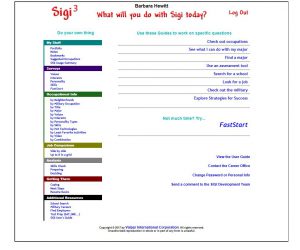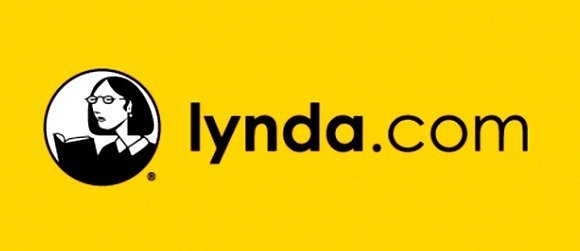by Fiona Tang, WH MBA ’17 and Wharton Graduate Assistant
Investment Banking vs. Consulting – A Student Perspective
By: Fiona Tang
Investment banking and consulting are usually popular career choices after graduation because of their great training programs, brand names and wide range of exit opportunities. Having been fortunate enough to work at both McKinsey and Goldman Sachs, I would like to share some pros and cons of each industry from my perspective.
Compensation: Banking tends to be more lucrative
Base salaries are similar in banking and consulting, but the bonus varies significantly for each industry. In banking, the bonus received may be valued as much as 12 or 24 months of your base salary while in consulting the maximum bonus is probably 6 months of salary. There is generally a 20% – 40% pay difference between banking and consulting at all position levels. Exit opportunities are also more lucrative after banking positions compared to consulting roles. Private equity and investment management positions pay a lot more than strategy roles in big corporations. If compensation is an important role in your decision making, banking might be a better option.
Job Security: Consulting is more secure
Job security in consulting is much less cyclical than banking. Regardless of good economic times or bad economic times, consulting firms continue hiring and minimize layoffs of junior staff. Investment banks, on the other hand, layoff more workers and enact hiring freezes during financial downturns. For example, this summer after I left Goldman Sachs, the Hong Kong office laid off 20 analysts and associates because the market isn’t doing well now.
Work Lifestyle: Unpredictable hours vs. Traveling
If you are looking for a 40 hour per week job, neither consulting or banking is ideal for you. The hours are LONG, generally 70-100 hours per week depending on your project or deal. As you become more senior and gain more work experience, the hours can be shorter. But my manager at McKinsey and VP at Goldman both still send emails to their teams at 2am on occasion – the nature of the work illustrates banking and consulting will never be nine-to-five jobs.
The big difference is that consulting is intense during the week but in general doesn’t require you to work on the weekends. The hours are more predictable as you will be working on one specific project and it’s easier to manage and plan ahead. The downside to consulting is endless traveling from Monday to Thursday. Trust me, waking up at 5am to catch a 7am flight to the client site on Monday is not fun.
Banking requires much less travel at junior level. However, the hours are less predictable as you don’t know when a deal will intensify or a pitch suddenly becomes live. As an analyst, you will be staffed on multiple deals and it’s difficult to predict your work hours or make plans in advance. During a live deal, working on the weekends is considered pretty normal.
Daily Work: PowerPoint or Excel?
Both bankers and consultants spend the majority of their time on Excel and PowerPoint. The key difference in banking is a focus on finance specifically and financial modeling in general. Junior bankers devote their time to studying the value of a company and its capital structure; junior consultants think about the strategy of a company and its organizational structure.
The life of a consultant is interesting because of the broad range of projects managed by a range of different partners. Every project and every client is different and the learning curve is quite steep in the first couple of years. However, sometimes I do struggle with limited opportunities to put ideas into practice – like junior bankers who put together endless pitch books for M&A deals that never happen.
Junior bankers’ work in some way is more process-driven. During the first six months, you will generally have a steep learning curve. But afterwards, IPOs, pitch books and M&A transactions will have a standard process with a different twist for each deal. If you are passionate about finance, you might like it. Otherwise, the daily work can become a little repetitive. That being said, the training and deal exposure are definitely invaluable assets for your future recruiting.
In terms of work culture, banking tends to be more tough. Bankers are not bad people – the nature of the work can simply be grueling though. A banker is usually staffed with a couple of deals simultaneously and when things become more active, it’s difficult for him or her to be patient when a junior banker asks certain questions. You may feel “on edge” awaiting new work assignments that may come at any time which may result in having to pull an all-nighter again. Consultants are generally only staffed on one project at a time, which makes it a lot easier to manage the workload and plan ahead of time. Hence, in consulting, managers have more time to focus on individual team members’ development, team bonding events, etc.
Future Job Prospects:
Banking and consulting do have somewhat different exit opportunities and career trajectories. Most of my consulting friends shift to startups, private equity, corporate strategy, or technology after 2 years while my banking friends go to startups, private equity, investment management, technology or corporate M&A. There is definitely some overlap given that the skillsets from banking and consulting are somewhat similar with a different focus. Consulting provides more training on strategy and big-picture thinking, which companies with corporate strategy roles or private equity operation roles might find very attractive. On the other hand, banking provides robust financial training and most finance-related jobs such as private equity and investment management find banking analysts good hires.
When choosing between consulting and banking, I would encourage you to think about where you see yourself in 2 years. If you know that you want to be in the finance world and work for a big private equity / hedge fund, banking would generally provide a better foundation. If you would like a role as senior management of a Fortune 500 company or managing a startup, consulting might provide more fundamental training. However, I definitely see some consultants switch to finance and bankers switch to strategy. You are not restricted if you choose one option or the other. What I share above is merely general guidance on the skillsets you would gain after 2 years and what companies are looking for from ex-bankers and ex-consultants.
Banking and consulting both provide excellent training and you will be working with talented and driven individuals. Whatever you choose, you can have a great career and I hope this provides general insight for the lifestyle of banking compared to consulting.



 Mastering Handshake will only take you a couple of minutes. Check out our
Mastering Handshake will only take you a couple of minutes. Check out our  Lynda has a ton great, skill-oriented tracks you can follow along with. Most videos are digestibility small (10-20 minutes) while full collections can total 40+ hours of hands-on training. Last year, I took a few courses on drawing, game design, and JavaScript.
Lynda has a ton great, skill-oriented tracks you can follow along with. Most videos are digestibility small (10-20 minutes) while full collections can total 40+ hours of hands-on training. Last year, I took a few courses on drawing, game design, and JavaScript.